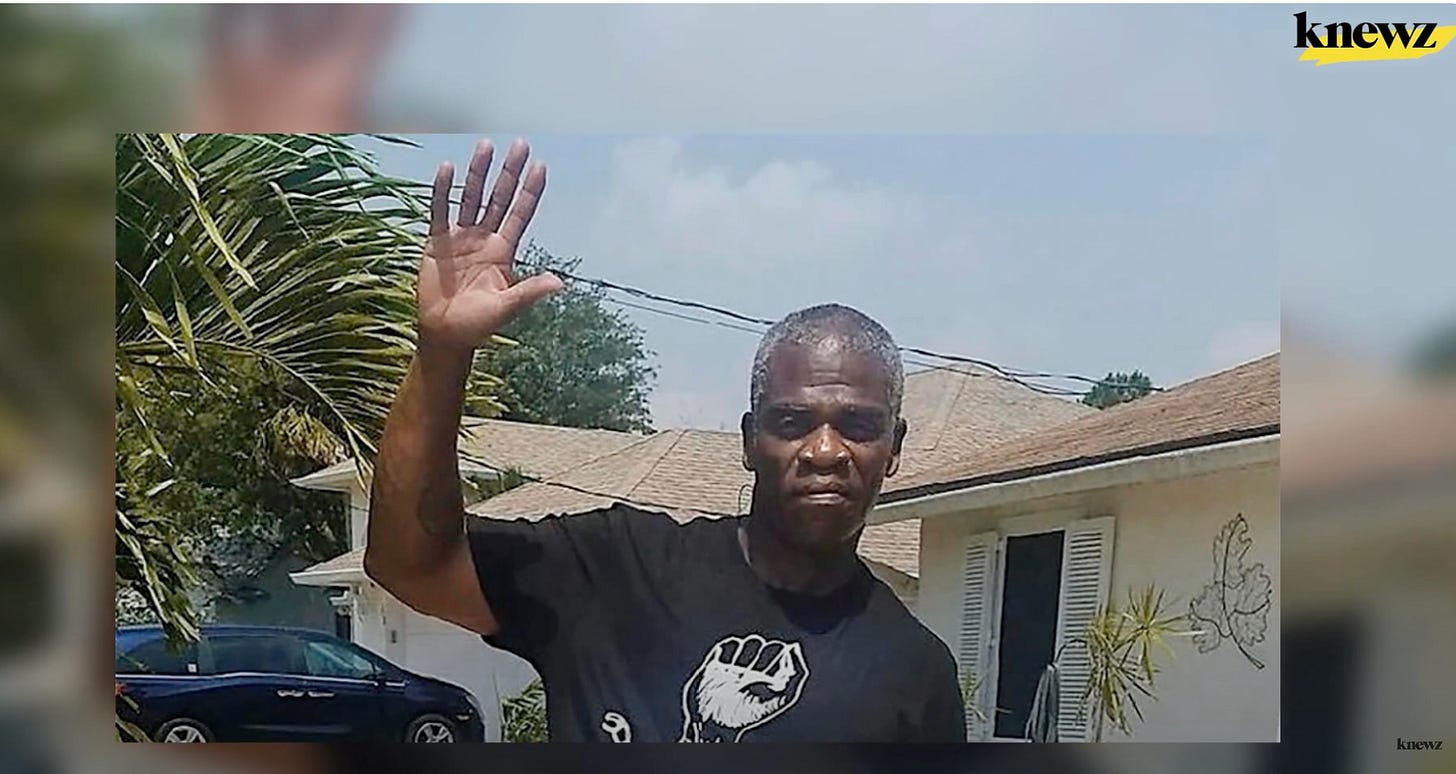Wrongfully Convicted Black Man Finally Freed From Prison Long Enough For GA Cop To Kill Him
Leonard Allan Cure deserved better.
It’s the same old story: Leonard Allan Cure, who’s Black, was pulled over on Monday while driving along Interstate 95 in Georgia. Cure exited his vehicle and complied with the Camden County deputy’s commands, but everything went to hell once he was placed under arrest for alleged reckless driving and speeding.
According to the Georgia Bureau of Investigation, the deputy tased Cure, who then “assaulted” the officer. He tased Cure again and struck him with his police baton. Cure was apparently too wound up from the tasing and beating to adequately comply, so the deputy shot and killed him. Cure was 53 years old.
That is an unfortunately typical story, but there’s an O. Henry twist: Cure had been recently exonerated after spending 16 years in a Florida prison for a crime he didn’t commit. After 16 years in prison, you’d think Cure would get a pass on speeding tickets.
Cure was convicted in 2004 for the armed robbery of a Walgreens. The eyewitness testimony was sketchy and the prosecution’s case even more so. Tough-on-crime politics can have innocent victims, and Cure was one of them. When he stood trial in August 2004, there was no physical or forensic evidence attaching him to the crime. The victim testimonies, which conflicted, were the only evidence used against him.
The first trial ended in a mistrial, and prosecutors graciously offered him a plea deal where he’d admit guilt and serve seven years. That’s hardly a bargain if you’re innocent.
During the next trial, one of the victims testified for the defense and said he wasn’t sure Cure was the robber. Nonetheless, the jury returned a guilty verdict and Cure was sentenced to life in prison. He appealed his case in 2006, but the Fourth District Court upheld his convictions. He filed for post-conviction relief in 2015 and 2016, but both petitions were denied. What does it take when the only evidence is eyewitness identification that one of the victims recants?
Cure wrote to the newly created Conviction Review Unit of the 17th Judicial Circuit in December 2019. After an initial review, CRU Director Arielle Demby Berger reached out on his behalf to the Innocence Project of Florida, which provided counsel for Cure.
On April 14, 2020, the CRU agreed to modify Cure’s sentence to 16 years to allow him to be released based on time served, while the re-investigation of his case continued. The investigation concluded Cure was not identified through the TRAP program, as Lt. Stewart testified at trial. While there may have been some other database through which Stewart was identified, the CRU investigation suggested an inquiry by the defense before the trial “could have led to questions about a lawful identification and subsequent lineups.” After the CRU concluded and suggested exoneration, Judge John J. Murphy vacated Cure’s convictions on December 11, 2020, and three days later all charges against him were dropped.
Cure was the first person to be exonerated by the Conviction Review Unit of the Broward State Attorney’s Office. Since his release almost three years ago, he’d held a steady job and planned to attend college and study music production.
In addition to an apology, the state of Florida compensated Cure for wrongfully taking 16 years of his life. He was just about to buy his first home outside Atlanta. Then a Camden County deputy pulled him over for speeding.
An investigation is ongoing, and we know not to trust the original police report. It does seems unlikely that someone who spent 16 years in prison would assault a cop. Yet, what if Cure did freak out when the deputy placed him under arrest? It is hard to blame him.
When Cure was on trial for armed robbery, there were so many alternative explanations and so much exculpatory evidence that was outright ignored. He had what TV shows lead us to believe is a “rock-solid alibi”: The robbery took place at 7:24 a.m. Multiple coworkers placed him at work before 8 a.m., and he withdrew money from an ATM at 6:52 a.m., miles away from the Walgreens.
He would’ve needed to drive his girlfriend’s car in order to commit the robbery and get to work on time, but witnesses testified that the suspect was walking. The prosecution didn’t care and neither did the jury.
Try to imagine the horror of having all rational evidence in your favor and still getting convicted in a supposed free society. You’re finally freed and rebuilding your life, and then you hear the sirens. For Richard Kimble, the running finally stopped once he found the one-armed man. Leonard Allan Cure wasn’t so fortunate.
Sorry, I’d suggested this was like an O. Henry story, but I was mistaken. Those are entertaining and often poignant. This is only tragic and senseless.
Follow Stephen Robinson on Bluesky and Threads.
Subscribe to his YouTube channel for more fun content.
Catch SER on his podcast, The Play Typer Guy.




When I was young me and a girl were robbed at gunpoint by a black guy who smacked me with a pistol before leaving and when I went to the police station to look at mug shots to see if I could ID the perp, a cop pressured me to claim it was some other guy he deemed worthy of prosecution. When I refused he got pissed and urgently explained this guy deserved prison. Cops.
I like how modern American cops have fully abandoned sacrifice as a risk of their duties, and have decided that protecting themselves is in fact more important than actually carrying out their duties. While at the same time, constantly whinging about how much they sacrifice, and how much deference they're owed. Motherfuckers, get fucking over yourselves. They're the most "have their cake and eat it too" fuckers in the goddamn world.